Related Research Articles

Sir William Empson was an English literary critic and poet, widely influential for his practice of closely reading literary works, a practice fundamental to New Criticism. His best-known work is his first, Seven Types of Ambiguity, published in 1930.
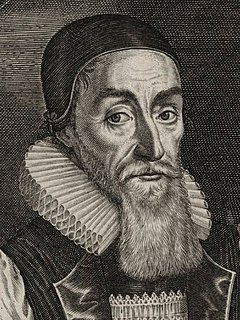
Joseph Hall was an English bishop, satirist and moralist. His contemporaries knew him as a devotional writer, and a high-profile controversialist of the early 1640s. In church politics, he tended in fact to a middle way.

Sir William Davenant, also spelled D'Avenant, was an English poet and playwright. Along with Thomas Killigrew, Davenant was one of the rare figures in English Renaissance theatre whose career spanned both the Caroline and Restoration eras and who was active both before and after the English Civil War and during the Interregnum.
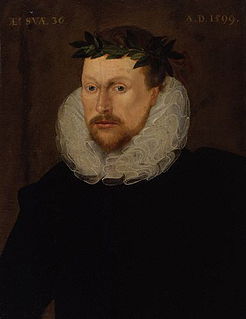
Michael Drayton was an English poet who came to prominence in the Elizabethan era. He died on 23 December 1631 in London.

A pastoral lifestyle is that of shepherds herding livestock around open areas of land according to seasons and the changing availability of water and pasture. It lends its name to a genre of literature, art, and music (pastorale) that depicts such life in an idealized manner, typically for urban audiences. A pastoral is a work of this genre, also known as bucolic, from the Greek βουκολικόν, from βουκόλος, meaning a cowherd.
Ottava rima is a rhyming stanza form of Italian origin. Originally used for long poems on heroic themes, it later came to be popular in the writing of mock-heroic works. Its earliest known use is in the writings of Giovanni Boccaccio.
Richard Crashaw was an English poet, teacher, High Church Anglican cleric and Roman Catholic convert, who was one of the major metaphysical poets in 17th-century English literature.
Robert Hayman was a poet, colonist and Proprietary Governor of Bristol's Hope colony in Newfoundland.
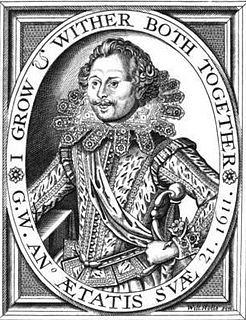
George Wither was a prolific English poet, pamphleteer, satirist and writer of hymns. Wither's long life spanned one of the most tumultuous periods in the history of England, during the reigns of Elizabeth I, James I, and Charles I, the Civil War, the Parliamentary period and the Restoration period.

William Browne was an English pastoral poet, born at Tavistock, Devon, and educated at Exeter College, Oxford; subsequently he entered the Inner Temple.

Lady Mary Wroth was an English noblewoman and a poet of the English Renaissance. A member of a distinguished literary family, Lady Wroth was among the first female English writers to have achieved an enduring reputation. Mary Wroth was niece to Mary Herbert née Sidney, and to Sir Philip Sidney, a famous Elizabethan poet-courtier.
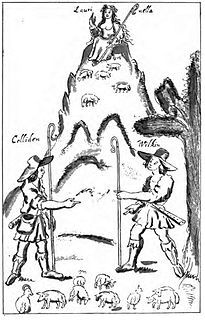
William Basse (c.1583–1653?) was an English poet. A follower of Edmund Spenser, he is now remembered principally for an elegy on Shakespeare. He is also noted for his "Angler's song", which was written for Izaak Walton, who included it in The Compleat Angler.
Henry Reynolds (1564–1632) was an English schoolmaster poet and literary critic of the seventeenth century.
Christopher Brooke was an English poet, lawyer and politician who sat in the House of Commons between 1604 and 1626.
John Reynolds (c.1588–c.1655) was an English merchant and writer from Exeter. He produced a series of violent stories around marriage, adultery and murder, as well as some political writings that caused him to be imprisoned.
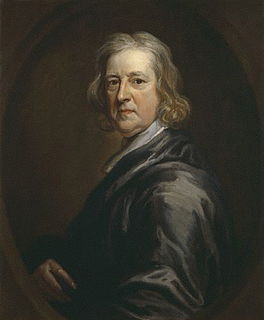
Thomas Papillon was an English merchant and politician, an influential figure in the City of London for half a century. He served as a Commissioner for the Victualling of the Navy from 1689 to 1699.
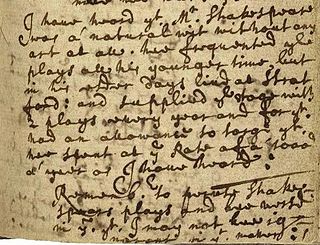
John Ward (1629–1681) was vicar of Stratford-upon-Avon from 1662 to 1681. He is noted for his diary in which he recorded anecdotes about William Shakespeare, his family, and others.
Humphrey Leech (1571–1629) was an English priest of the Church of England and Catholic convert, known as a Jesuit author.
Sir Henry Goodyer, also spelled Goodere and Goodier, was an English landowner and courtier, remembered today mainly for his close friendship with John Donne.

John Dancer was an Irish dramatist, connected with the Theatre Royal, Dublin. His works consist of several translations from Italian and French, original plays, and some miscellaneous stories and poems.
References
. Dictionary of National Biography . London: Smith, Elder & Co. 1885–1900.